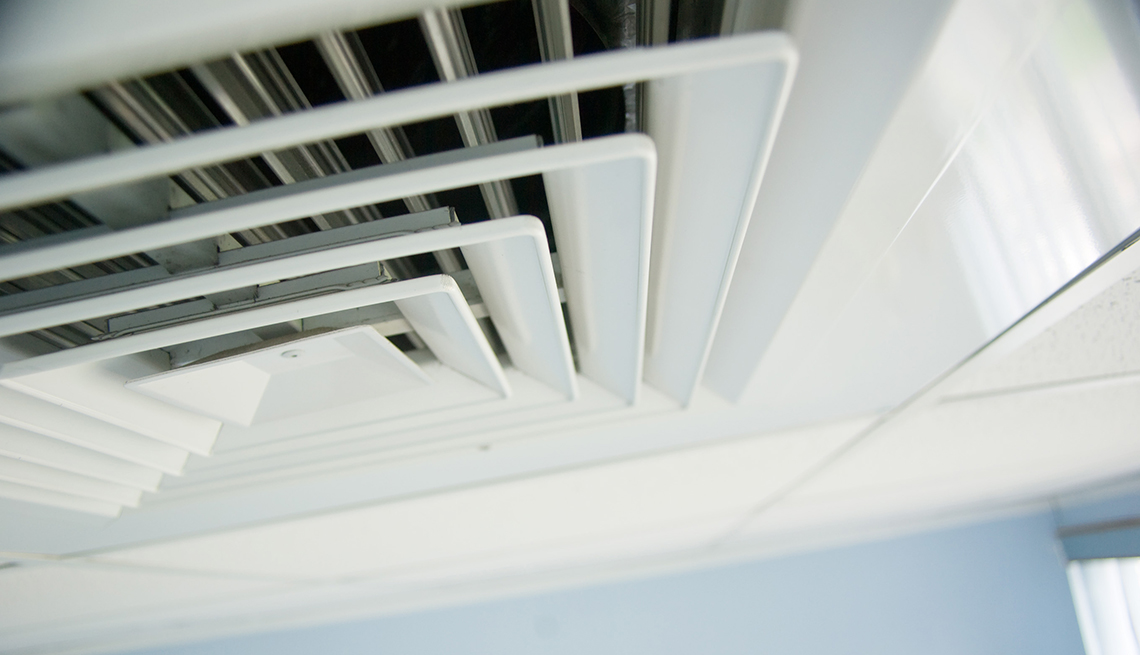
Does air conditioning spread the coronavirus?
- Select a language for the TTS:
- UK English Female
- UK English Male
- US English Female
- US English Male
- Australian Female
- Australian Male
- Language selected: (auto detect) - EN
Play all audios:

There haven't been any confirmed cases of the virus spreading by way of air conditioning units yet, Marr says, but the virus has been found in air-handling ducts in a hospital. (Whether
it was enough virus to infect somebody is unclear; the study hasn't yet been peer-reviewed.) An analysis published by the Centers for Disease Control and Prevention (CDC) also examines
the role an air conditioning unit may have played in the spread of the virus in a small, inadequately ventilated restaurant in Guangzhou, China. "There's nothing inherently wrong
about air conditioning; it's just when it's done poorly that it's a problem,” Allen says. Which is why, as schools and businesses determine the safest course of action for
reopening, much of the attention is on making sure buildings and their ventilation systems are as healthy as possible. YOUR AIR CONDITIONING AT HOME Running your air conditioning at home
shouldn't be a problem, especially if you are with the same group of people you've been exposed to this whole time. One situation where it may be a cause for concern is if you have
a big party in your home, Marr says, “which you shouldn't be doing anyway.” The CDC recommends older adults limit interactions with other people as much as possible to reduce their
risk of infection. Plus, in the summer months, the dangers of heat stroke and other heat-related illnesses can't be overlooked, particularly among older adults, says Richard L. Corsi,
dean of Portland (Ore.) State University's Maseeh College of Engineering & Computer Science and an expert on indoor air quality. According to the CDC, air conditioning is the number
one protective factor against heat-related illness and death. However, if you are concerned about the quality of air circulating in your home, there are a few things you can do. First:
Replace the filters in your air conditioning system, especially if it's been a while. Both Corsi and Marr recommend upgrading to a MERV 13 filter, which removes a high percentage of
particles from the air, including droplets and aerosols. If your system won't handle a MERV 13, opt for the highest-quality filter it can handle and be sure to follow installation
instructions. If you don't have air conditioning at home, and it's comfortable to do so, open your windows to bring the outdoor air inside. This will help dilute and clear out the
trapped air. You can also purchase a portable HEPA (high-efficiency particulate air) air cleaner to keep in your home. The American Society of Heating, Refrigerating and Air-Conditioning
Engineers (ASHRAE) recommends placing it in the area where most people in the household spend their time. Finally: If you're riding in a car with people from outside your household,
roll the windows down, Marr says. “It makes a huge difference. Cars will usually recirculate the air for air conditioning.” The same goes for public buses, which often have windows riders
can open.
